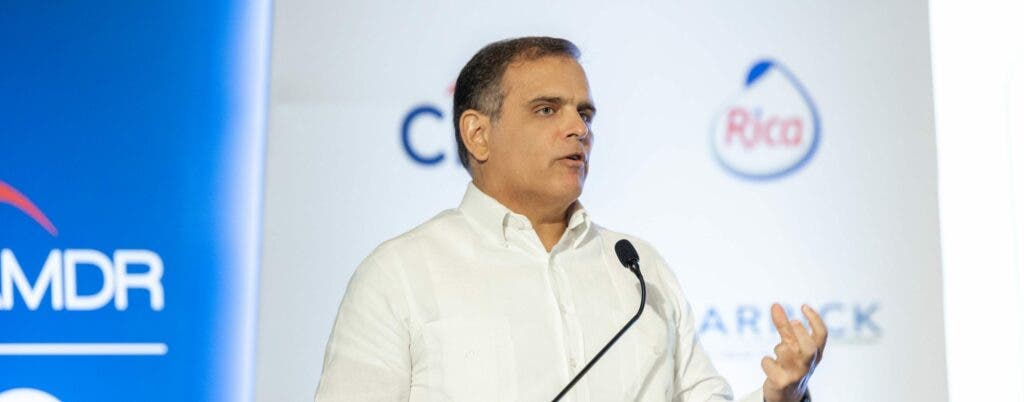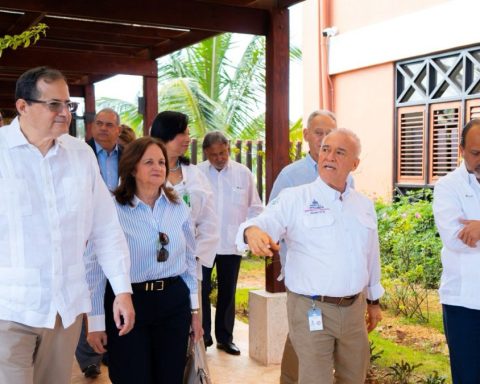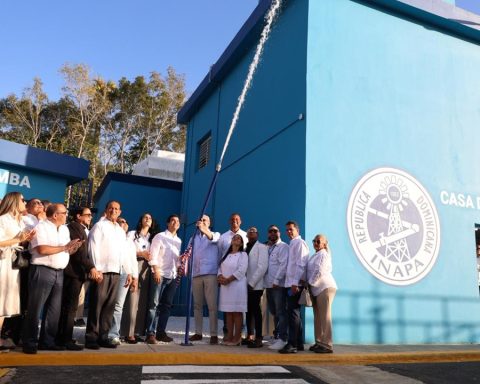The central axes of the reform are: guaranteeing social protection, public investment and prioritized expenses, clear and equal rules for everyone, and simplifying the tax system.
“We absolutely all have to contribute to this reform,” said the Minister of Finance, José Manuel Vicente, highlighting that all sectors must make a commitment to the tax reform to create the desired country.
He considered it as one of the principles that will govern the tax reform process along with tax equity and a frontal attack on evasion and avoidance.
He indicated that the central axes of the reform are four: guarantee social protection, public investment and prioritized expenses, clear and equal rules for everyone, simplify and modernize the tax system.
Vicente offered these details when participating as a speaker at the Lunch of the American Chamber of Commerce of the Dominican Republic (Amchamdr) and, although he did not mention a specific date, he expressed that it would be presented soon by the Government.
He explained that they propose a reform that adds RD$110,418 million in annual resources and its use would go to the areas of citizen security (RD$13,043 million), primary health care (RD$ 10,870 million), transportation (RD$ 35,272 million), local governments (RD$ 11,000 million), recapitalization of the Central Bank (RD$ 22,233 million) and electricity sector (RD$ 18,000 million).
He explained to the Amchard partners that a fiscal reform is required to minimally satisfy certain needs of the population, given the concern that public spending is very low and public debt has grown and that of the Non-Financial Public Sector (NFPS). as a percentage of GDP it was 45.1% in 2023.
He added that the public sector has first put the fiscal responsibility law on the table, which places limits on the growth of public spending. Also the reform of the State with the merger of three ministries, the merger of four institutions for greater efficiency and the elimination of 10 institutions. And measures to contain public spending have also been presented.
The Minister of Finance argued each axis of the reform and emphasized that the vulnerable population will be protected by the State. “In certain elements, the reform may have some impact on the most vulnerable population, but the State will protect that population, so that the effects of the reform are not negative on those who do not have enough income to face it,” he pointed out.
The second axis is the public investment program and this is due to the fact that historically the Dominican Republic’s public investment in infrastructure is one of the lowest in Latin America and the Caribbean. Capital spending as a % of GDP is 2.7% in recent years, the regional average is 3.1% and the aspiration is 5%.
Vicente said that it is necessary to increase spending on infrastructure since he cannot continue financing development with debt.
He emphasized that the third axis is clear and equal rules for everyone and pursuing tax evasion, with the objective of achieving tax equity. So that two companies that earn the same pay the same amount of tax.
“With the tax adjustments we are proposing, we will ensure that all companies compete on a level playing field. We are going to eliminate distortions and privileges that create inequities between taxpayers”, he expressed.
The fourth axis he cited is to modernize the tax system to improve tax collection and bring it closer to the levels of other countries in the region and reduce evasion and make the system more accessible to taxpayers. The approaches in this regard will be: strengthening tax administration, expanding the tax base and reducing levels of informality, simplifying the tax regime and guaranteeing efficiency and increasing the progressivity and equity of the system.
The official said that the payment of the advance would have modifications for MSMEs.
















